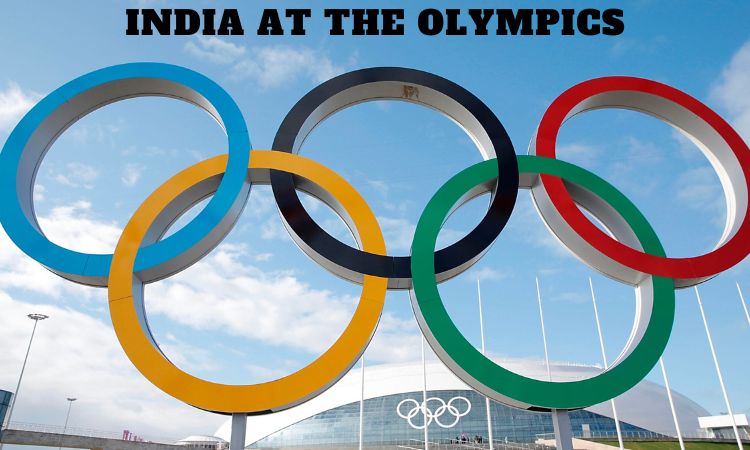
India’s journey at the Olympics has been a story of perseverance, dedication, and triumph. Over the years, Indian athletes have made their mark on the world stage, bringing home medals and making the nation proud. This article delves into the history, achievements, and significant milestones of India at the Olympics, highlighting the country’s progress and the athletes who have become legends.
Early Participation and Challenges
India’s first appearance at the Olympic Games was in 1900 when Norman Pritchard, an Anglo-Indian athlete, represented the nation in Paris. He won two silver medals in athletics, marking India’s debut on the Olympic podium. Despite this early success, India’s journey in the Olympics was fraught with challenges, including limited resources, lack of infrastructure, and inadequate training facilities.
The Golden Era of Indian Hockey
The period between 1928 and 1956 is often referred to as the golden era of Indian hockey. The Indian men’s hockey team dominated the sport, winning six consecutive gold medals. The team’s remarkable performance during this era established India as a formidable force in the world of hockey. Legendary players like Dhyan Chand, Balbir Singh Sr., and Kishan Lal played pivotal roles in these victories, showcasing exceptional skill and teamwork.
Post-Independence Achievements
After gaining independence in 1947, India continued to participate in the Olympics, with hockey remaining the nation’s stronghold. The 1952 Helsinki Olympics saw wrestler K.D. Jadhav winning a bronze medal in bantamweight wrestling, becoming the first individual Olympic medalist for independent India.
A New Dawn in Individual Sports
The 1996 Atlanta Olympics marked a turning point for India in individual sports. Leander Paes won a bronze medal in tennis, ending a 44-year medal drought in non-hockey events. This achievement inspired a new generation of athletes to pursue excellence in various sports.
Rise of Shooting and Boxing
In the 2000 Sydney Olympics, Karnam Malleswari became the first Indian woman to win an Olympic medal, securing a bronze in weightlifting. This victory paved the way for more women athletes to compete at the highest level. The 2004 Athens Olympics saw shooter Rajyavardhan Singh Rathore winning a silver medal in men’s double trap shooting, further boosting India’s presence in shooting sports.
Boxing also saw a resurgence with Vijender Singh winning a bronze medal in the 2008 Beijing Olympics, followed by Mary Kom’s bronze in women’s boxing at the 2012 London Olympics. These achievements brought attention to the sport and inspired many young athletes.
Historic Wins in Wrestling and Badminton
Wrestling emerged as another stronghold for India, with Sushil Kumar winning a bronze medal in 2008 and a silver in 2012. Yogeshwar Dutt also secured a bronze medal in 2012, highlighting India’s prowess in wrestling. Badminton saw its first Olympic medal with Saina Nehwal’s bronze in 2012, followed by P.V. Sindhu’s silver in 2016 and bronze in 2021, establishing badminton as a prominent sport in India.
The 2016 Rio Olympics and Beyond
The 2016 Rio Olympics was a significant event for India, with P.V. Sindhu and Sakshi Malik winning silver and bronze medals, respectively. Sindhu’s silver in badminton and Malik’s bronze in wrestling showcased the growing talent and potential of Indian women athletes. Additionally, Dipa Karmakar’s fourth-place finish in gymnastics was a commendable achievement, bringing attention to a sport that had not previously been popular in India.
Tokyo 2020: A Landmark Achievement
The Tokyo 2020 Olympics was a landmark event for India, with the nation winning a record seven medals. Neeraj Chopra’s gold medal in javelin throw was a historic win, as it was the first time an Indian athlete had won a gold in athletics. The Indian men’s hockey team also made a significant comeback, winning a bronze medal after 41 years. Mirabai Chanu (silver in weightlifting), Ravi Kumar Dahiya (silver in wrestling), Lovlina Borgohain (bronze in boxing), P.V. Sindhu (bronze in badminton), and Bajrang Punia (bronze in wrestling) were the other medalists, making the Tokyo Olympics India’s most successful games to date.
A New Dawn: India at the Olympics Medals 2024 and Beyond
The Tokyo 2020 Olympics marked a watershed moment for India. The nation’s medal tally soared, fueled by exceptional performances in various disciplines. This resurgence ignited a wave of optimism and expectation, setting the stage for future endeavors.
The Paris 2024 Olympics further solidified India’s position on the global sporting stage. While the nation fell short of surpassing the Tokyo tally, the six medals won, including a silver and five bronze, showcased the depth of talent and the growing prowess of Indian athletes.
The Paris Games also highlighted the diversity of India’s medal-winning potential. Shooting emerged as a powerhouse, contributing significantly to the overall tally. Athletes like Manu Bhaker, who became the first Indian to win two medals in a single Olympics, showcased the country’s rising dominance in the sport.
Beyond shooting, India’s performance in athletics, particularly in track and field, garnered attention. Neeraj Chopra, the reigning Olympic champion in javelin throw, continued to be the face of Indian athletics, inspiring a generation of young athletes.
The Road Ahead: Challenges and Opportunities
While the recent successes are undoubtedly commendable, India still has a long way to go to establish itself as a consistent medal contender. The nation faces several challenges, including infrastructure development, talent identification, and scientific training.
Addressing these issues requires a holistic approach. Investing in grassroots development, creating world-class training facilities, and providing adequate support to athletes are crucial steps. Moreover, fostering a culture of sports and encouraging physical education in schools can help identify and nurture young talent.
The Indian Olympic Association (IOA) and the government have a pivotal role to play in creating a conducive environment for athletes to thrive. Collaborations with private organizations and sports academies can also contribute to the overall ecosystem.
The Impact of Olympic Success
India’s growing stature in the Olympics has far-reaching implications. It has inspired millions of young Indians to pursue sports as a career, leading to a surge in participation across various disciplines. Moreover, the nation’s Olympic heroes have become role models, inspiring a new generation to dream big and aim high.
Olympic success also enhances India’s global image. It showcases the nation’s progress and development, attracting investments and tourism. Furthermore, it fosters a sense of national pride and unity.
Conclusion
India’s journey at the Olympics has been a rollercoaster ride, marked by both triumphs and setbacks. However, the recent surge in medal wins has injected new life into the nation’s sporting aspirations. With sustained efforts and a focused approach, India has the potential to become a formidable force in the world of sports.
The ultimate goal is to create a sustainable Olympic ecosystem that produces world-class athletes consistently. By investing in infrastructure, talent development, and sports culture, India can not only increase its medal tally but also inspire generations to come.


